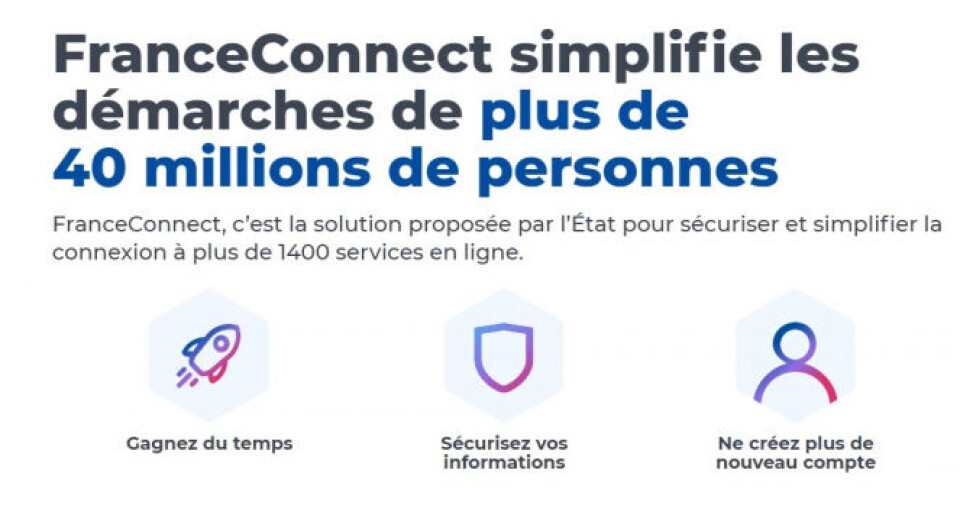-
Occitanie copper phase-out ramps up – how it will affect residents
There are some simple steps you can take to prepare for the switchoff
-
Which cars are stolen the most in France and why?
Perhaps surprisingly, the higher-end vehicles are not the most targeted
-
Several wolf sightings in centre of Frejus, Var
Rules have been relaxed around shooting wolves that threaten livestock
New FranceConnect scam warning: How to protect your personal data
The scam sees fraudsters pose as FranceConnect agents, who then attempt to get you to divulge your details
People in France are being warned to be alert to a new online scam in which criminals pose as agents from the French administrative platform FranceConnect in a bid to steal personal data.
Victims have reported being approached by people claiming to be “agents from FranceConnect”. They may call from a mobile number and ask the respondent to “finish their sign-up on the platform”.
The scammers may know your name and other details, in an attempt to appear legitimate. However, one would-be victim said they became suspicious when the caller told them their birth month but not the date.
Another almost-victim said they realised it was a scam when the caller asked them to confirm their social security number. The scammer said the first three numbers and asked the respondent to complete the rest.
This is one of the techniques that scammers use to steal data. Another is to warn of scammers and to promise the respondent that they will receive an email confirming their data. They may then ask you to “confirm” your email address by spelling it out in full.
Read more: What is FranceConnect?
Spreading scams
These types of scams are spreading.
The Mutualité Sociale Agricole (MSA) said more than 1,400 people had fallen victim to this kind of identity theft via scammers posing as FranceConnect agents. In 2022, the service even temporarily disconnected from l’Assurance maladie due to growing numbers of fraudulent reports.
In response to the increased scams, FranceConnect has introduced FranceConnect+, a tool that aims to secure logins to the site with technology typically used for financial transactions and banking.
How to avoid falling victim to the scam
FranceConnect has advised people to:
-
Never give out personal data over the phone or via SMS
-
Never click on a link that comes from an SMS unless you are 100% sure it is genuine
-
Look for small details and errors in website addresses before you click, as scam addresses are likely to have small character changes or different punctuation to the real address (e.g. ‘france-connect’ or ‘franceconnect-gouv’ instead of ‘franceconnect’ or ‘franceconnect.gouv’).
-
Remember that FranceConnect will never call to ask you to confirm details
-
Stay alert even if the number appears legitimate, as scammers can use technology to change their number
-
Use the FranceConnect+ tool, which offers verification tools as an extra layer of security
The FranceConnect+ system uses a stronger authentication system and two-step verification to secure your account even more.
What if I think I have fallen victim to the scam?
FranceConnext has its own help page about security here. It offers advice on how to check security details, including your login history; and how to report a scam or a login attempt that you do not recognise.
It also walks you through how to block access to websites that you do not use with your FranceConnect details - for example, the La Poste site or Yris.
What is FranceConnect?
FranceConnect avoids you having to remember a different password for different government services and other national administrative sites. You only need one password and one user ID code (identifiant) to log on.

You can set it up via a range of official websites, including the tax website impots.gouv.fr, and the Assurance maladie website ameli.fr.
FranceConnect uses these sites because they check your identity carefully as part of registration, and you must provide a valid ID document to use them. Other official sites that use the login portal will likely have a blue button that you can click on, which reads “s’identifier avec FranceConnect”.
Related articles
Bank fraud and other scams on rise in France: What to watch out for
Online and text scams: France plans warning system to prevent fraud
























